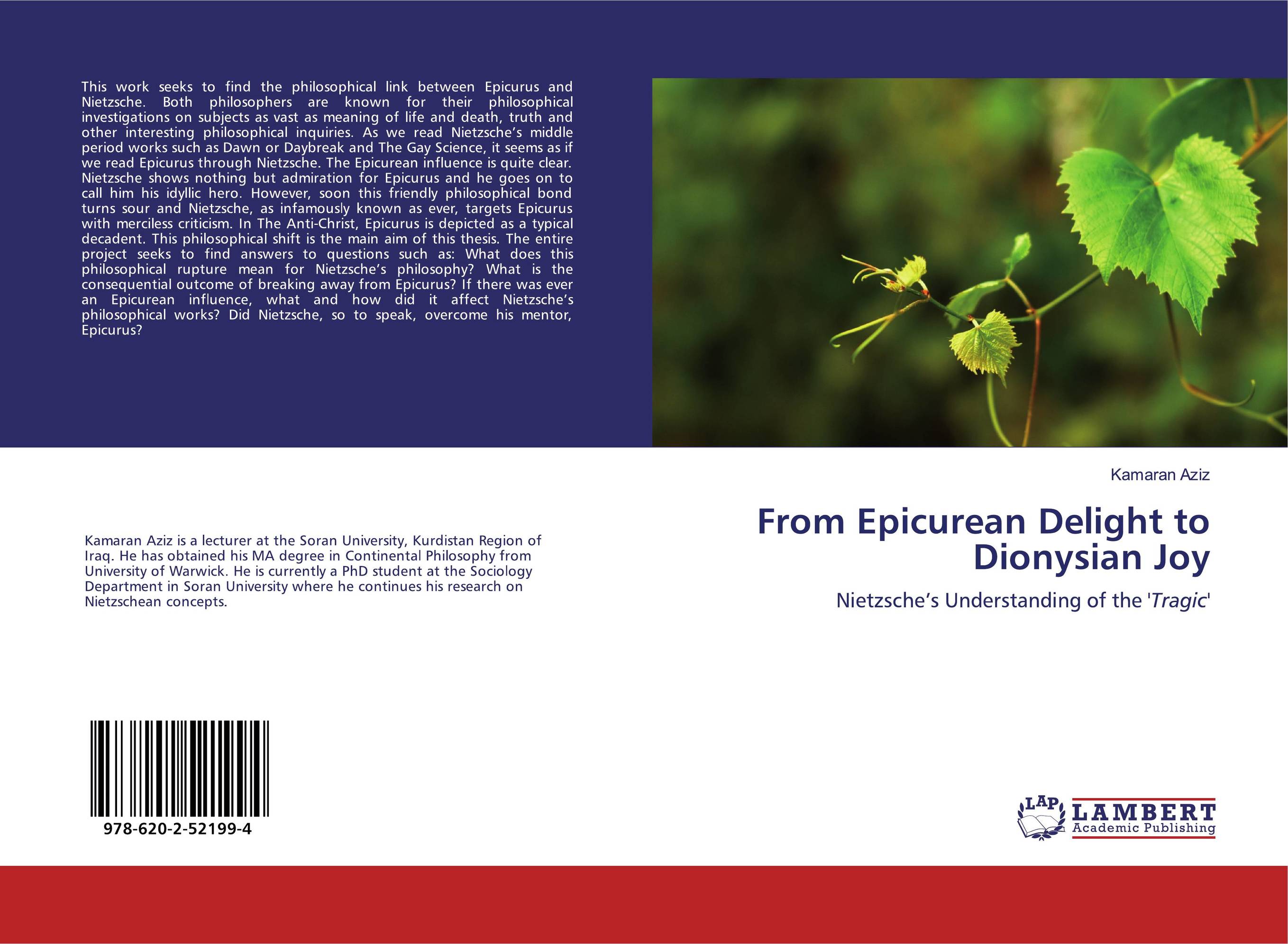| Поиск по каталогу |
|
(строгое соответствие)
|
- Профессиональная
- Научно-популярная
- Художественная
- Публицистика
- Детская
- Искусство
- Хобби, семья, дом
- Спорт
- Путеводители
- Блокноты, тетради, открытки
From Epicurean Delight to Dionysian Joy. Nietzsche’s Understanding of the 'Tragic'

В наличии
| Местонахождение: Алматы | Состояние экземпляра: новый |

Бумажная
версия
версия
Автор: Kamaran Aziz
ISBN: 9786202521994
Год издания: 2020
Формат книги: 60×90/16 (145×215 мм)
Количество страниц: 64
Издательство: LAP LAMBERT Academic Publishing
Цена: 23350 тг
Положить в корзину
| Способы доставки в город Алматы * комплектация (срок до отгрузки) не более 2 рабочих дней |
| Самовывоз из города Алматы (пункты самовывоза партнёра CDEK) |
| Курьерская доставка CDEK из города Москва |
| Доставка Почтой России из города Москва |
Аннотация: This work seeks to find the philosophical link between Epicurus and Nietzsche. Both philosophers are known for their philosophical investigations on subjects as vast as meaning of life and death, truth and other interesting philosophical inquiries. As we read Nietzsche’s middle period works such as Dawn or Daybreak and The Gay Science, it seems as if we read Epicurus through Nietzsche. The Epicurean influence is quite clear. Nietzsche shows nothing but admiration for Epicurus and he goes on to call him his idyllic hero. However, soon this friendly philosophical bond turns sour and Nietzsche, as infamously known as ever, targets Epicurus with merciless criticism. In The Anti-Christ, Epicurus is depicted as a typical decadent. This philosophical shift is the main aim of this thesis. The entire project seeks to find answers to questions such as: What does this philosophical rupture mean for Nietzsche’s philosophy? What is the consequential outcome of breaking away from Epicurus? If there was ever an Epicurean influence, what and how did it affect Nietzsche’s philosophical works? Did Nietzsche, so to speak, overcome his mentor, Epicurus?
Ключевые слова: Nietzsche, Dionysian Joy, tragic, Amor Fati, Epicureanism, Epicurus



